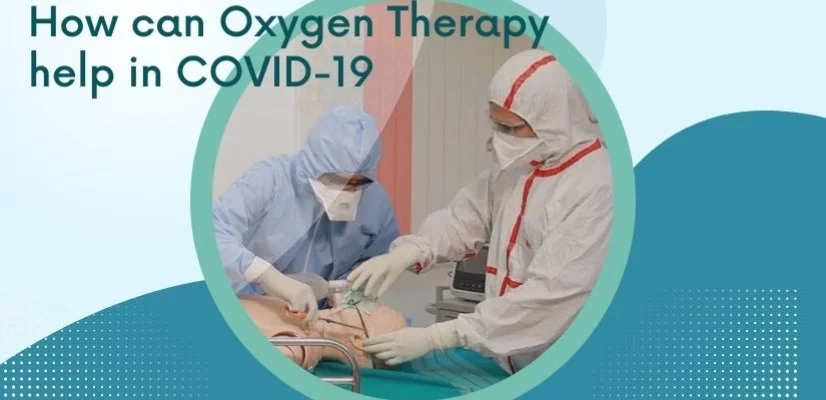What is Oxygen therapy?
Oxygen is a gas that is necessary for human survival. It is a gas that can be found in the air we breathe. If you have a chronic lung illness, your organs may require additional (supplemental) oxygen to function properly. This need of supplemental oxygen is known as oxygen therapy
Some conditions that may necessitate oxygen therapy, either temporarily or permanently:
- COPD (chronic obstructive pulmonary disease)
- Pulmonary Fibrosis
- Pneumonia
- Severe Asthma
- Cystic fibrosis is a disease that affects the lungs.
- Sleep Apnea (sleep deprivation)
Oxygen therapy is a treatment that gives you extra oxygen or supplemental oxygen. Hospitals commonly use oxygen therapy, but individuals can also use it at home. At home, people use a variety of technologies for oxygen therapy. Your healthcare professional will assist you in selecting the equipment that is most appropriate for you for oxygen therapy. The healthcare provider administers oxygen therapy using nasal prongs (an oxygen cannula) or a face mask. They can connect oxygen concentrators to other medical devices including CPAP machines and ventilators to perform oxygen therapy.
What is Covid-19
The SARS-CoV-2 virus causes the infectious disease known as coronavirus disease (COVID-19).
The majority of virus-infected individuals will experience mild to severe respiratory disease and will recover without the need for special care. However, some people will get serious illnesses and need to see a doctor. Serious sickness is more likely to strike older persons and those with underlying medical illnesses including cancer, diabetes, cardiovascular disease, or chronic respiratory diseases. COVID-19 can cause anyone to become very ill or pass away at any age.
Being knowledgeable about the illness and the virus’s propagation is the best strategy to stop or slow down transmission. Stay at least one meter away from people, put on a mask that fits properly, and wash your hands to prevent spreading disease to other people and yourself. Get vaccinated when it’s your turn and follow local guidance.
Symptoms of COVID-19
Although all patients that test positive for COVID-19 do not require oxygen therapy. COVID-positive patients may exhibit the following indications of oxygen deprivation:
- Breathlessness
- Rapid, shallow breathing
- Increased heart rate.
- Increased blood pressure
- Bluish discoloration of hands, feet, and face.
- Fatigue
- Pneumonia is indicated by chest discomfort, fever, and cough.
- Confusion
Patients who show these symptoms may need oxygen therapy.
Amidst the pandemic, oxygen has become a vital yet scarce resource. During the second wave of COVID in 2021 there was an acute shortage of oxygen cylinders and oxygen concentrators which instated a lot of panic in the country. Therefore, oxygen and oxygen therapy is highly essential during the pandemic. I hope this article was helpful and informative.
Oxygen Therapy and COVID-19
The world is amidst a pandemic called COVID-19. COVID-19 is a virus that hinders our respiratory abilities by affecting our lungs and the blood oxygen saturation levels i.e. SpO2. The novel Coronavirus binds to the ACE-2 receptors in the lungs. The virus affects the epithelial cells that line the respiratory system and protect it from infections and diseases. When they become infected, their bodies go through a number of changes:
- The alveoli (small sacs in the lungs) interrupt the exchange of oxygen and carbon dioxide.
- The body activates its immune system and releases immune cells such as cytokines and interleukins to combat the infection. When this immune reaction persists for an extended period of time, it promotes inflammation and further obstructs oxygen transfer in the lungs.
- People with severe COVID-19 may have edema and fluid build-up in the lungs as a result of the infection, leading to pneumonia.
- Significant damage to the alveoli can also lead to Acute Respiratory Distress Syndrome (ARDS), which typically manifests as extreme dyspnea or a fast breathing rhythm.
All of these circumstances can make it difficult for the patient to breathe regularly, necessitating oxygen therapy
Disclaimer
The information provided is for general knowledge only. Consult your doctor for personalized advice and treatment. Medikart HealthCare is not liable for any actions taken based on this info.

